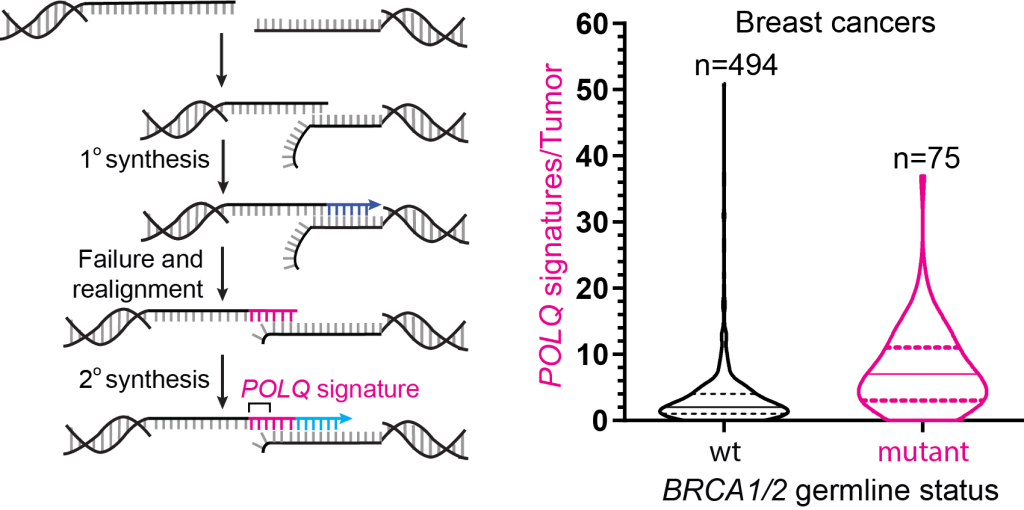Pol θ mediated end joining
Early work identified DNA Polymerase theta (Pol θ) in a systematic screen for suppressors of genome instability. Inhibition of this polymerase is largely tolerated in normal cells yet lethal to many cancers, making it an important target for cancer therapy. However, its biological functions, as well as the mechanisms that allow it to perform these functions, remain largely enigmatic. Our lab is working with 4 other labs – Gaorav Gupta’s , Rick Wood’s, Sylvie Doublie’s, and Eli Rothenberg’s – to develop a detailed understanding of how this polymerase acts in repair of chromosome breaks, then to leverage this understanding for safer, more efficient cancer therapy. For examples of this work, see: initial characterization of biological role, mechanism, structure, genetic interactions….and more on mechanism, as well as how it generates a distinctive genomic scar that is more frequently found in hereditary breast cancer genomes (see figure, below). Megan and Susanna work on this project.

